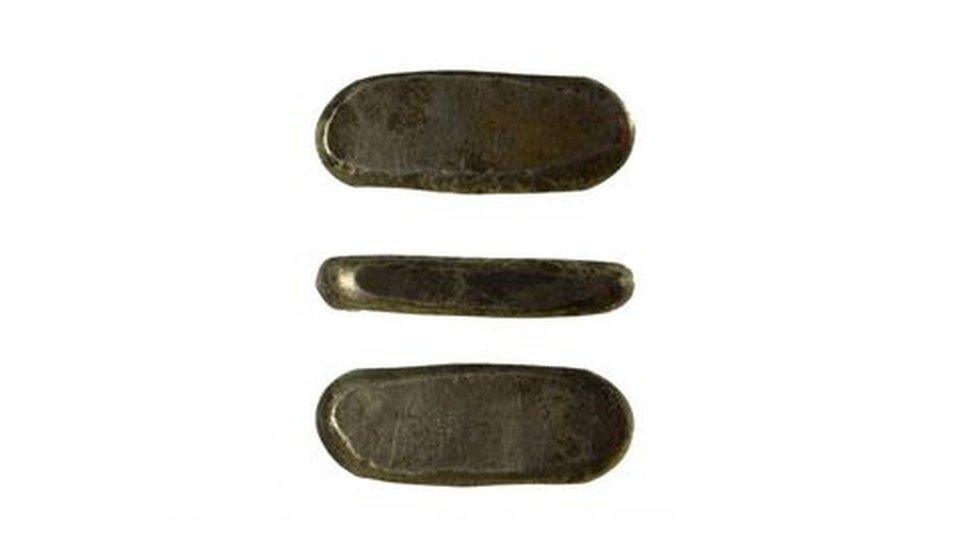Sutton Hoo: Photos of 1939 excavation digitised
- Published
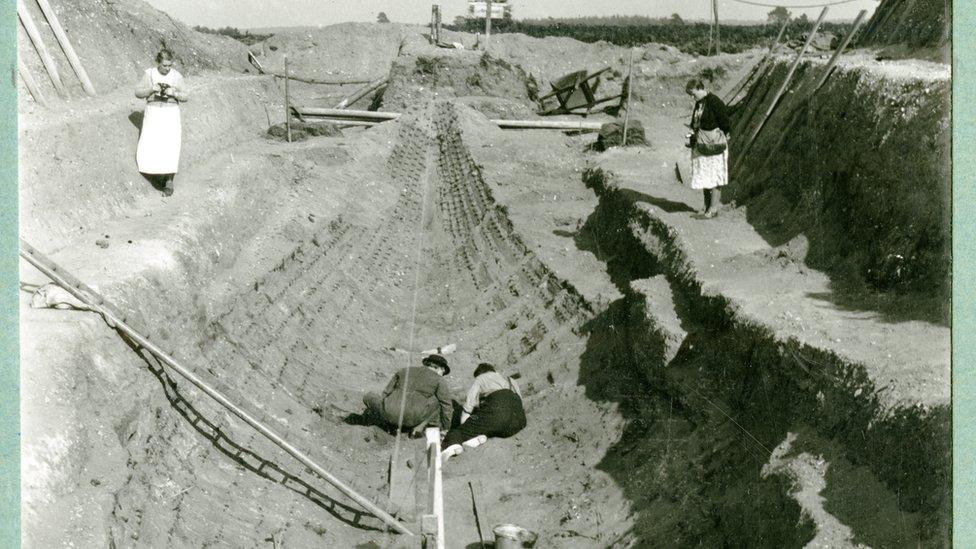
Barbara Wagstaff, left, and Mercie Lack, right, photographed the excavation site near Woodbridge on the eve of World War Two
A collection of photos from the 1939 excavation of Sutton Hoo have been digitised.
Barbara Wagstaff and Mercie Lack photographed the unearthing of the Anglo-Saxon ship burial in Suffolk on the eve of World War Two.
The excavation was recently the subject of Netflix film The Dig.
Hundreds of images can be viewed online and at Sutton Hoo, where the museum has recently reopened after the Covid lockdown eased.
Laura Howarth, archaeology and engagement manager at the National Trust-run site, said the images were "hugely significant" for archaeology and "a slice of social history".
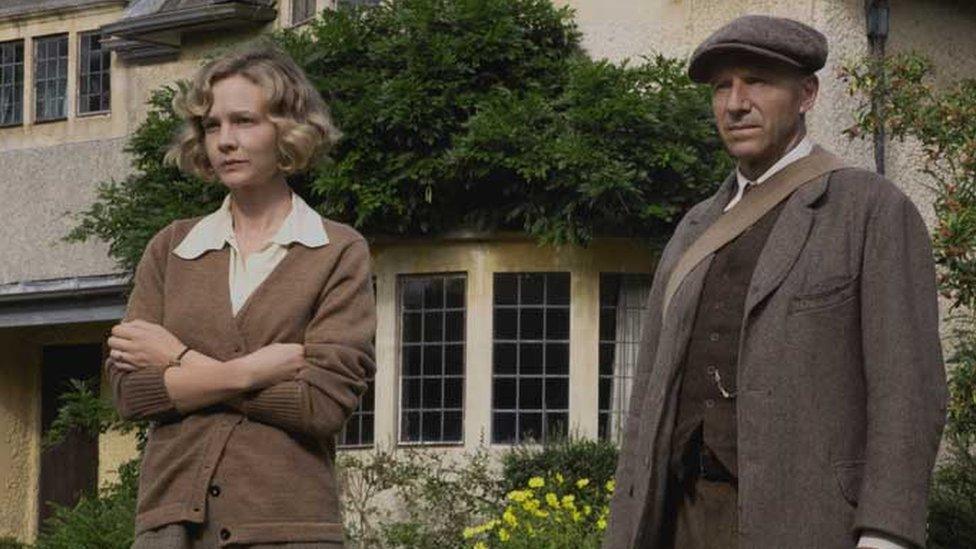
The relationship between landowner Edith Pretty (Carey Mulligan) and Basil Brown (Ralph Fiennes) forms the backbone of the film The Dig
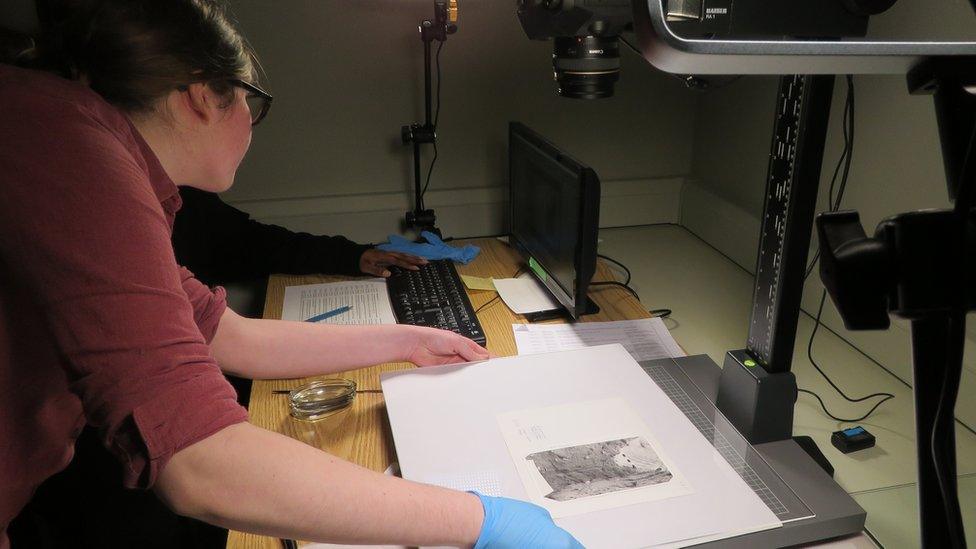
It took a team three years to catalogue each image
Local archaeologist Basil Brown discovered a burial ship and a central chamber filled with treasures, including a warrior's helmet, a gold belt buckle, sword and shield, believed to have belonged to East Anglia's 7th Century ruler King Rædwald.
The finds, unearthed just as war was breaking out in September 1939, have been described as some of "the greatest archaeological discoveries of all time" by the British Museum.
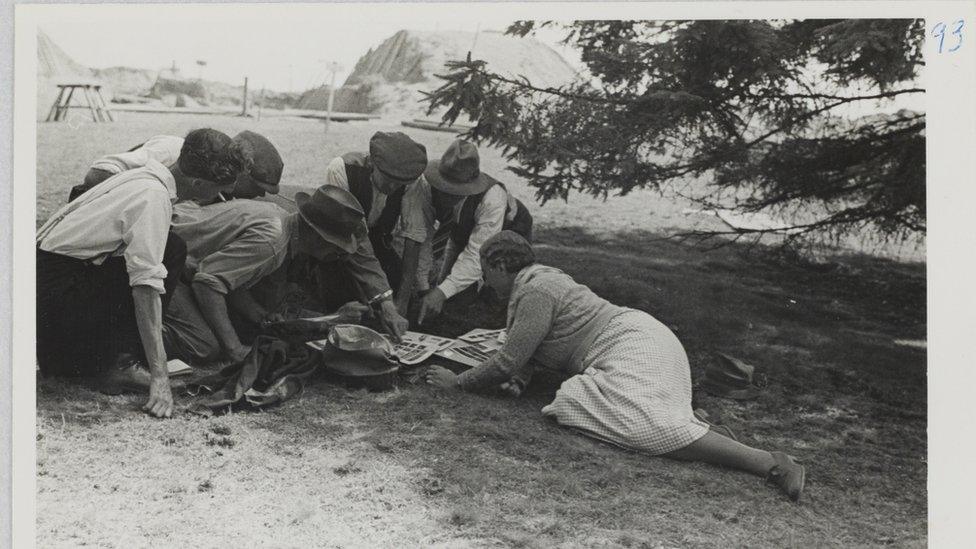
Mercie Lack showing members of the excavation team a selection of contact prints, with the excavation in the background
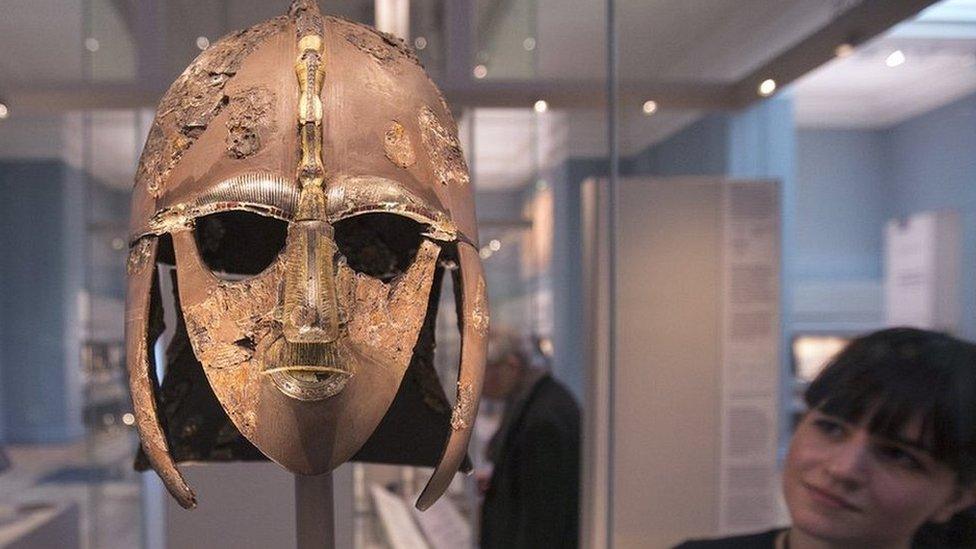
The remains of the Sutton Hoo warrior's helmet are at the British Museum in London, with the pieces mounted on a model showing the full shape of the headwear
Twelve photo albums were gifted to the National Trust by Mercie Lack's nephew, Andrew Lack.
It has taken three years to catalogue, digitise and, where necessary, repair the images.
Visitors to the National Trust property can see digital "flickable" versions of the albums before walking to the burial mounds where the photos were taken.
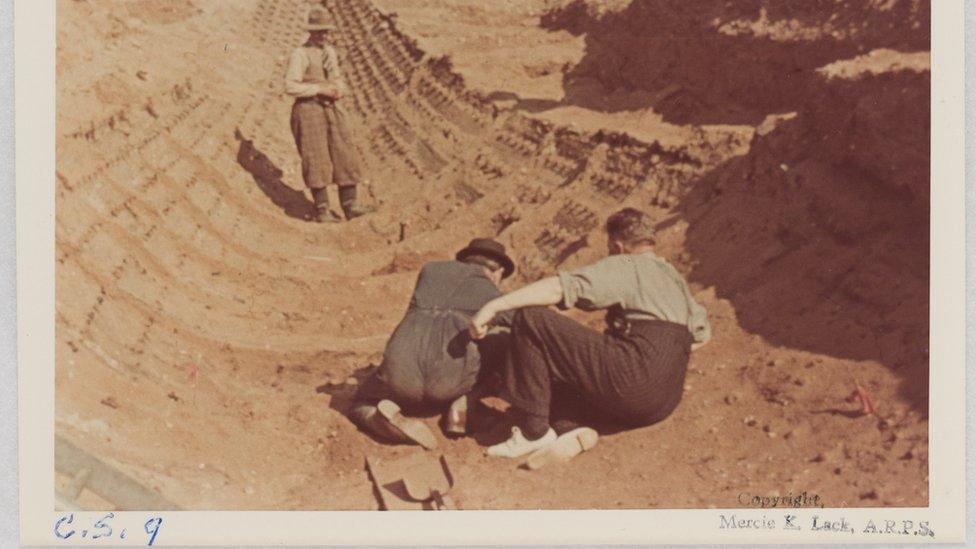
Lieutenant Commander Hutchison (left) and Charles Phillips (right) seated just beyond the burial chamber region and Basil Brown standing
Part of the collection features some of the earliest surviving original colour photographs, the National Trust said.
Ms Lack and Ms Wagstaff obtained a roll of 35mm German Agfa colour slide film, which went on sale in Britain briefly before the war began.
The official photographs of the excavation were given to the British Museum, but those featuring in the Sutton Hoo exhibition are "personal" images which the two photographers kept as their "mementoes", the National Trust said.
Andrew Lack said: "I am delighted to be able to share my great aunt's collection, she would have been thrilled. Sutton Hoo remained one of her great passions."

Find BBC News: East of England on Facebook, external, Instagram, external and Twitter, external. If you have a story suggestion email eastofenglandnews@bbc.co.uk
- Published27 June 2021
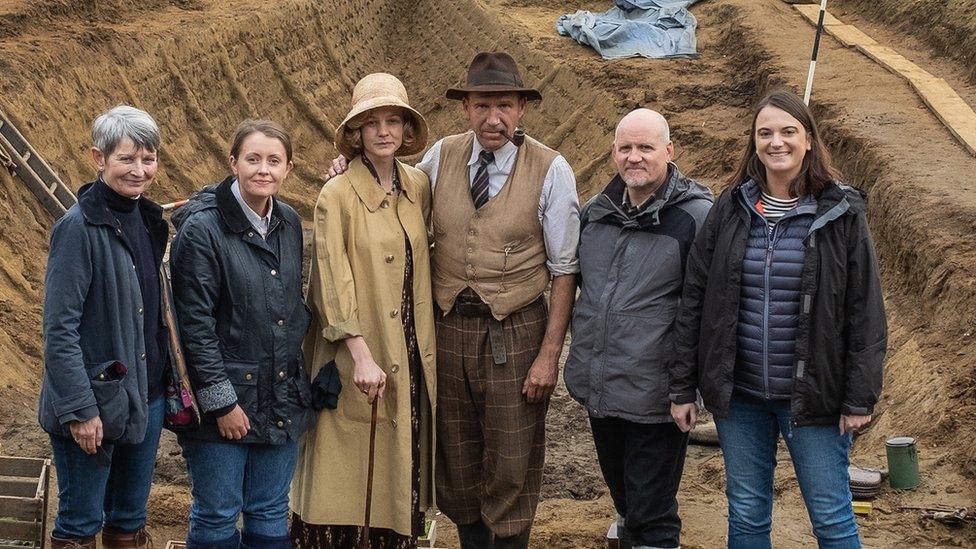
- Published2 February 2021

- Published14 January 2021
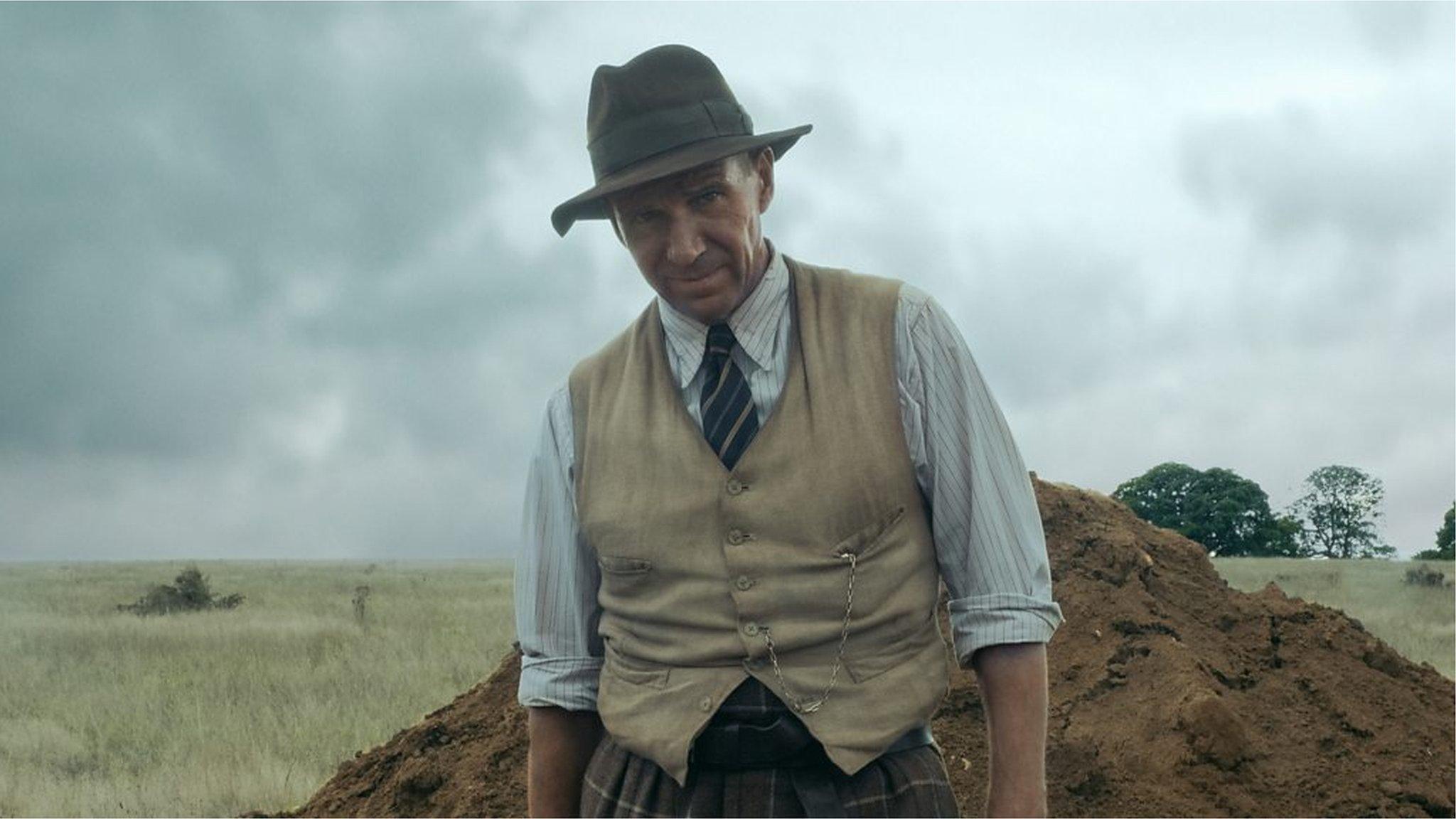
- Published17 January 2021
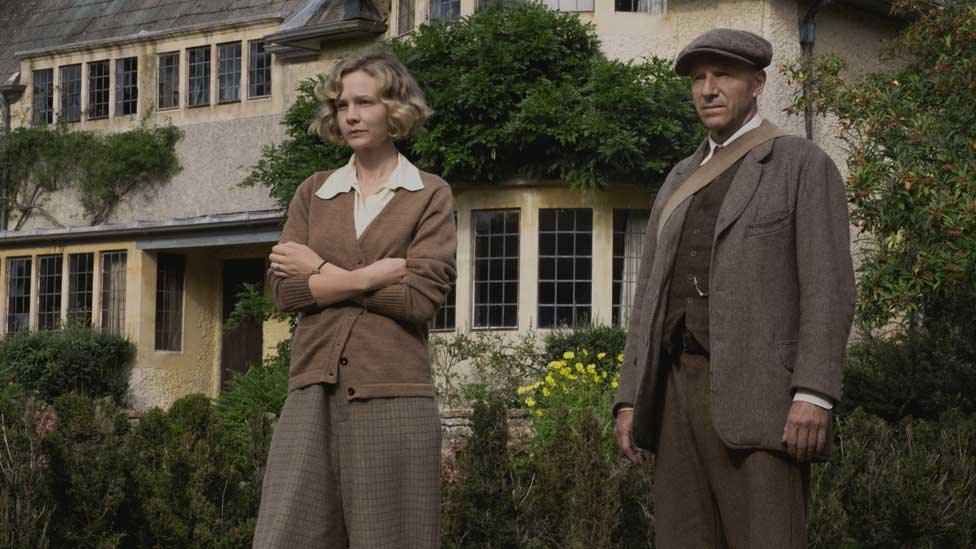
- Published16 September 2020
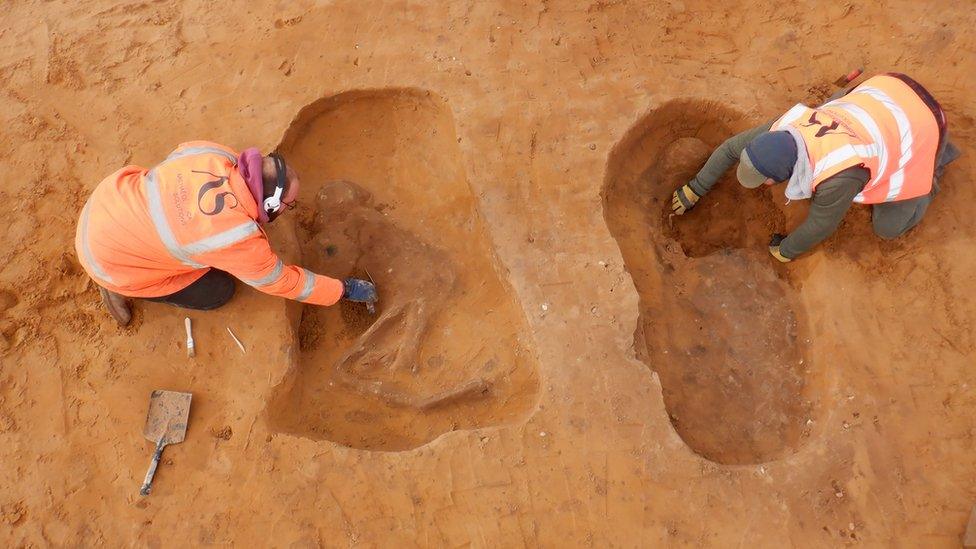
- Published24 March 2018
